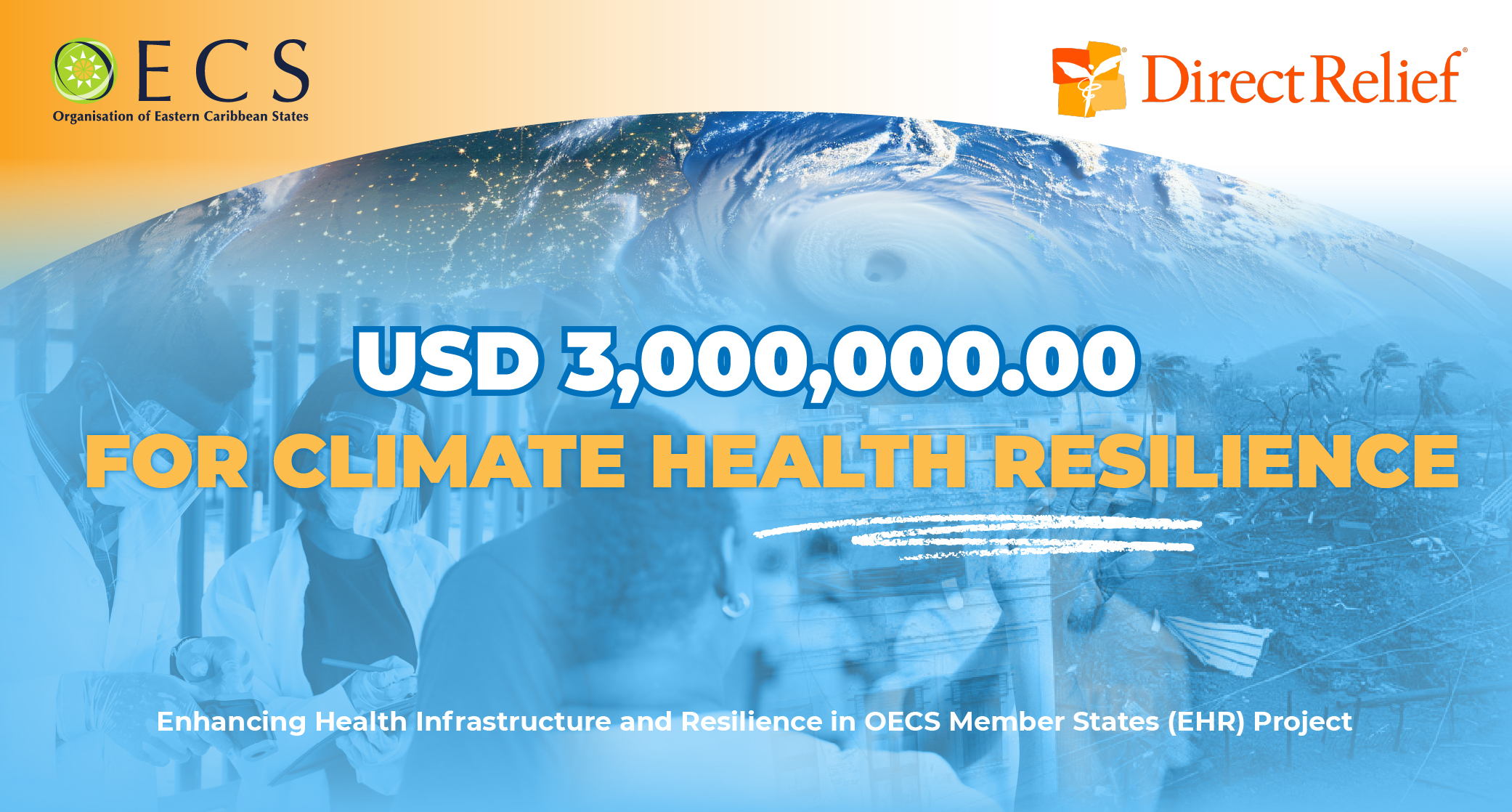OECS Commission & Direct Relief Announce Partnership Agreement to Enhance Climate Health Resilience in OECS Member States
OECS MEDIA RELEASE
The Organisation of Eastern Caribbean States (OECS) Commission and Direct Relief are pleased to announce the signing of a grant agreement, marking the beginning of a significant partnership aimed at enhancing climate health resilience in the nine English-speaking OECS Member States. Through this agreement, Direct Relief has generously committed USD 3,000,000 to fund the new Enhancing Health Infrastructure and Resilience in OECS Member States (EHR) Project.
Direct Relief is a humanitarian aid organisation with a mission to improve the health and lives of people affected by poverty or emergencies- without regard to politics, religion or ability to pay. It works in the US and internationally to expand access to medicine and healthcare by equipping doctors and nurses with lifesaving medical resources.
The EHR Project will address critical gaps in health infrastructure identified by OECS Member States, focusing on priority areas specific to each nation's needs. By doing so, the project aims to bolster the capacity at both national and regional levels to manage and mitigate the impacts of climate change and other hazards. It will also enhance financial and coordination mechanisms to respond effectively to disasters and outbreaks.
Since the passage of Hurricane Beryl on July 1st, 2024, the OECS Commission has been engaged in mobilizing resources to support affected Member States in their response, recovery and rebuilding efforts. The OECS-Pooled Procurement Services (PPS) was able to provide two pallets of Hurricane Prepared Modules and fifteen Emergency Medical Packs, courtesy of Direct Relief. The new Enhancing Health Infrastructure and Resilience in OECS Member States (EHR) Project, which will run over eighteen months, is both timely and relevant, with anticipated short, medium and long-term impacts.
It aligns with the OECS Commission's mandate to promote regional integration in the OECS region and its strategic priorities. Additionally, direct beneficiaries of the EHR Project include disaster response teams, healthcare facilities, and workers. The project is expected to have positive spillover effects on community members, government agencies, and partner organisations in the implementing countries, which include: Antigua and Barbuda, Commonwealth of Dominica, Grenada, Montserrat, Saint Kitts and Nevis, Saint Lucia, Saint Vincent and the Grenadines, Anguilla and the British Virgin Islands.

The EHR Project is poised to make a substantial contribution to the OECS Commission's Strategic Priority 4: Building resilience by strengthening communities, systems, infrastructure and people. This involves improving disaster preparedness and response, reducing vulnerabilities, and enhancing the capacity of health systems. By focusing on Strategic Priority 4, the project aims to strengthen access to and investment in health services thereby reducing health disparities, particularly during times of crisis.
Through this grant agreement with Direct Relief, the new Enhancing Health Infrastructure and Resilience in OECS Member States (EHR) Project enables OECS Member States to be better equipped to handle health emergencies and crises. It ensures that vulnerable populations continue to receive care even during challenging times, and contributes to the development of more sustainable healthcare systems within OECS Member States.
*Note- Since the passage of Hurricane Beryl, Direct Relief has provided hurricane preparedness medical modules, emergency medical backpacks, 6-person family tents, medical cots, hygiene kits and nutritional supplements for Grenada and Saint Vincent and the Grenadines.
Malika Thompson-Cenac
OECS Communications Unit
.jpg)